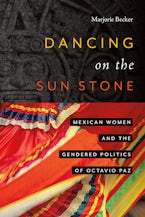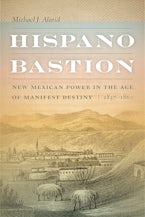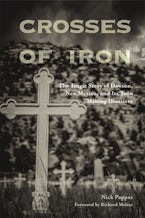Revolutionary Masculinity and Racial Inequality
Gendering War and Politics in Cuba
Published by: University of New Mexico Press
One of the most paradoxical aspects of Cuban history is the coexistence of national myths of racial harmony with lived experiences of racial inequality. Here a historian addresses this issue by examining the ways soldiers and politicians coded their discussions of race in ideas of masculinity during Cuba's transition from colony to republic. Cuban insurgents, the author shows, rarely mentioned race outright. Instead, they often expressed their attitudes toward racial hierarchy through distinctly gendered language--revolutionary masculinity.
By examining the relationship between historical experiences of race and discourses of masculinity, Lucero advances understandings about how racial exclusion functioned in a supposedly raceless society. Revolutionary masculinity, she shows, outwardly reinforced the centrality of color blindness to Cuban ideals of manhood at the same time as it perpetuated exclusion of Cubans of African descent from positions of authority.
Bonnie A. Lucero is an associate professor of history and the director of the Center for Latino Studies at the University of Houston-Downtown. She is also a coeditor of Voices of Crime: Constructing and Contesting Social Control in Modern Latin America. She lives in Houston, Texas.
"Illustrates how the war for Cuban independence constructed Cuban masculinity ideals through the obstruction of truth about racism on the island."--Christopher M. White, author of A Global History of the Developing World
List of Illustrations
Acknowledgments
Introduction. Gendered Language amid Racial Silence in Cuba
Part I. From Effeminate Colonials to Manly Soldiers: Forging Revolutionary Masculinity on the Battlefield, 1895-1898
Chapter One. "To Acquire the Dictate of Free Men": Decolonizing Masculinity through Military Service
Chapter Two. Forging Patriarch-Soldiers: Womanhood and White Patriarchy in the Construction of Insurgent Manhood
Chapter Three. Mambí or Majá?: Measures of Merit and Double Standards of Military Authority
Part II. From Brave Soldiers to New Men?: Claiming Martial Manhood during the Transition from Intervention to Occupation, 1898-1899
Chapter Four. "To Manage with Virility Our Own Affairs": Defining the New Man between Military Intervention and Occupation
Chapter Five. Testing the Racial Limits of Martial Manhood: Black Political Exclusion and Patriarchal Claims-Making
Chapter Six. Agents of Order or Disorder?: Black Veterans, Urban Law Enforcement, and the Racial Politics of Violence
Part III. From Revolutionaries to Neocolonials: The Specter of Black Criminality and the Conditionality of Public Authority, 1900-1902
Chapter Seven. Not Simply "Because One Happens to Belong to the Male Species": Race, Rural Law Enforcement, and Political Disorder amid Restricted Suffrage
Chapter Eight. "The Colored Patriot and His Box of Matches": Black Criminality, White Radicalism, and the Redefinition of the New Man in an Era of Universal Manhood Suffrage
Conclusion. The Racial Limits of Revolutionary Masculinity
Notes
Bibliography
Index










